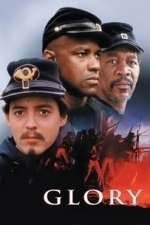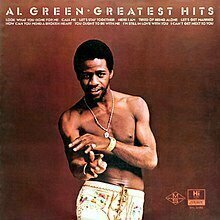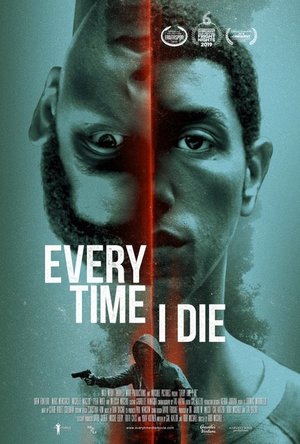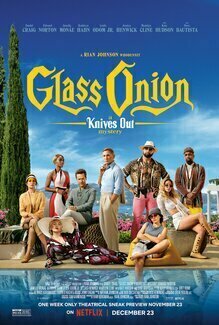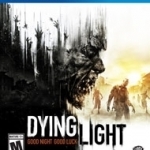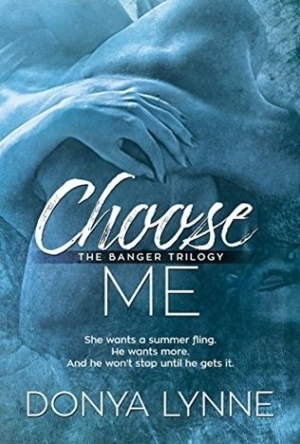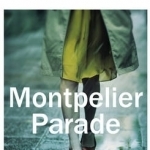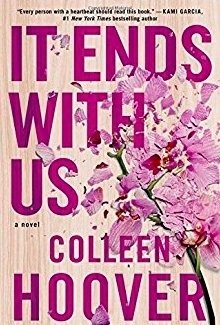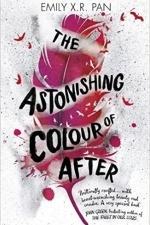Search
Search results
BankofMarquis (1832 KP) rated Glory (1989) in Movies
Apr 14, 2020
Well acted with tense battle scenes
Every now and then, I'll watch a specific scene in a movie and when it is complete, I say to myself - "that person just won the Oscar." Such was the case for a young "up and coming' actor in the 1989 Civil War film GLORY.
Directed by Richard Zwick (LEGENDS OF THE FALL) Glory tells the true story of the 54th Massachusetts Volunteer Infantry of the Union Army in the Civil War - the first all black infantry - and stars Mathew Broderick (FERRIS BUELLER'S DAY OFF), Cary Elwes (THE PRINCESS BRIDE), Morgan Freeman (on his way to becoming well known), Andre Braugher (in one of his first screen appearances) and Denzel Washington (who won an Oscar for his work).
Zwick does a wonderful job putting a unique spin on a standard story - ragtag group of soldiers band together, they go through bootcamp together and shift from a disparate group of individuals to a solid team - and then prove their worth in battle. This could have easily been a "paint by numbers" film but Zwick makes it something more, putting the emphasis on the soldiers and the obstacles they need to overcome and downplaying the danger and the violence. Don't get me wrong - the action sequences are intense and well made, they just aren't the point of the film.
The point of the film are the men who are involved - and the 5 leads are tremendous. Morgan Freeman shows the grace and leadership and authority that he would bring to many, many pictures. Elwes shows that he can command a screen, if given a chance and Denzel sparkles in his scenes. This picture shows a true movie star being born. But the real surprises for me on this viewing is the work of Matthew Broderick, playing a very different character than the light comedy performances we had seen from him in films like FERRIS BUELLER and on the stage that we would come to know him as in such musicals as THE PRODUCERS. This film shows that he has some wonderful acting chops and is just at home with a dramatic role as he is with a light comedic role.
But...the actor that really stood out from the others in this showing is the great Andre Braugher in his first Major Motion Picture appearance. He would go on to shine brightly in such roles as Detective Pembleton in HOMICIDE: LIFE ON THE STREETS and currently is starring as Captain Holt in BROOKLYN 99, but in Glory he was an unknown commodity and his portrayal of free, educated black man Thomas Searles - a childhood friend of both the Broderick and Elwes characters - who must adjust to being one of "the men" with this collection of uneducated former slaves and live in a tiered relationship with 2 men that are his peers and friends is heartbreaking to watch. Even though I was thrilled with Washington's Oscar (he does have the "Oscar scene" in this film), I thought Braugher's performance was just as good - maybe even better.
All of this leads the audience to a finale that is intense - and intensely personal - for you are invested in these men as they face insurmountable odds and most certain death.
I've been re-watching quite a few movies lately, and GLORY is one that hit me harder - and is better - than I remembered. Well worth checking out.
Letter Grade: A
9 stars (out of 10) and you can take that to the Bank(ofMarquis)
Directed by Richard Zwick (LEGENDS OF THE FALL) Glory tells the true story of the 54th Massachusetts Volunteer Infantry of the Union Army in the Civil War - the first all black infantry - and stars Mathew Broderick (FERRIS BUELLER'S DAY OFF), Cary Elwes (THE PRINCESS BRIDE), Morgan Freeman (on his way to becoming well known), Andre Braugher (in one of his first screen appearances) and Denzel Washington (who won an Oscar for his work).
Zwick does a wonderful job putting a unique spin on a standard story - ragtag group of soldiers band together, they go through bootcamp together and shift from a disparate group of individuals to a solid team - and then prove their worth in battle. This could have easily been a "paint by numbers" film but Zwick makes it something more, putting the emphasis on the soldiers and the obstacles they need to overcome and downplaying the danger and the violence. Don't get me wrong - the action sequences are intense and well made, they just aren't the point of the film.
The point of the film are the men who are involved - and the 5 leads are tremendous. Morgan Freeman shows the grace and leadership and authority that he would bring to many, many pictures. Elwes shows that he can command a screen, if given a chance and Denzel sparkles in his scenes. This picture shows a true movie star being born. But the real surprises for me on this viewing is the work of Matthew Broderick, playing a very different character than the light comedy performances we had seen from him in films like FERRIS BUELLER and on the stage that we would come to know him as in such musicals as THE PRODUCERS. This film shows that he has some wonderful acting chops and is just at home with a dramatic role as he is with a light comedic role.
But...the actor that really stood out from the others in this showing is the great Andre Braugher in his first Major Motion Picture appearance. He would go on to shine brightly in such roles as Detective Pembleton in HOMICIDE: LIFE ON THE STREETS and currently is starring as Captain Holt in BROOKLYN 99, but in Glory he was an unknown commodity and his portrayal of free, educated black man Thomas Searles - a childhood friend of both the Broderick and Elwes characters - who must adjust to being one of "the men" with this collection of uneducated former slaves and live in a tiered relationship with 2 men that are his peers and friends is heartbreaking to watch. Even though I was thrilled with Washington's Oscar (he does have the "Oscar scene" in this film), I thought Braugher's performance was just as good - maybe even better.
All of this leads the audience to a finale that is intense - and intensely personal - for you are invested in these men as they face insurmountable odds and most certain death.
I've been re-watching quite a few movies lately, and GLORY is one that hit me harder - and is better - than I remembered. Well worth checking out.
Letter Grade: A
9 stars (out of 10) and you can take that to the Bank(ofMarquis)
Rick Astley recommended Greatest Hits by Al Green in Music (curated)
Natasha Khan recommended Selected Ambient Works 85-92 by Aphex Twin in Music (curated)
Lee (2222 KP) rated Every Time I Die (2019) in Movies
Oct 26, 2020
Not to be confused with No Time To Die, this indie supernatural thriller is lacking in big-budget polish and characters that you feel invested in, but manages to get by on an interesting concept and some sharp execution.
We begin with Sam (Drew Fonteiro), seeing what he sees as he gently blinks open his eyes to reveal Mia (Melissa Macedo) alongside him in bed. Sam has had a nightmare, and as he heads into the bathroom, he begins to experience an uncomfortable buzzing in his head, which leads to a blackout. When Sam comes around again, he’s crouched on the floor at work, with no memory as to how he arrived there. He’s wearing a paramedic uniform and holding a photo of two children, a brother and sister. On the back of the photo is written ‘remember Sara’.
Sam’s work colleague and friend, Jay (Marc Menchaca) invites Sam to join him and his wife Poppy (Michelle Macedo) at a lodge for the weekend. Poppy is the twin sister of Mia, who we saw in bed with Sam earlier and both Mia and her husband Tyler are also at the lodge. Tyler is a soldier, suffering from PTSD, and it’s clear that Sam and Mia have been having an affair behind his back, which now puts Sam in a bit of an awkward situation.
By this point, we’ve already witnessed Sam experiencing several more blackouts, including one while driving to the lodge. Each time, Sam has no recollection of what happened during the blackout, although a video recorded during one of the blackouts by his friends, shows that he does remain conscious and able to hold a conversation. Occasionally we get flashbacks and dream sequences which reveal that the brother and sister from the photo earlier are in fact Sam and his sister Sara, who drowned in a terrible accident when they were both children.
The first half of Every Time I Die is a slow, frustrating experience, not helped by the fact that the character of Sam is incredibly dull. Consequently, we feel no emotional connection to Sam, despite the childhood trauma he suffered and the turmoil he now experiences as an adult. Thankfully, the second half picks up when a jealous Tyler discovers that his wife has been cheating on him with Sam and murders Sam out by a lake in the forest. Thanks to the first-person perspective that was utilised earlier, we discover that Sam then transferred into the body of friend Jay, and must now try and convince his friends what Tyler has done. Not an easy task when Jay has a history of mental illness, leading the others to believe he’s had a relapse.
From there, Every Time I Die is just a roller coaster ride of clever ideas and twists, constantly dragged down by further flashbacks and confusing dream sequences, which are meant to help us and Sam understand what happened to him and his sister, but repeatedly stall the narrative momentum instead.
That being said, for the most part, I really enjoyed Every Time I Die. Aside from the slow first half, and the character of Sam, it’s well written, well crafted and with a satisfying, heart-warming finale.
We begin with Sam (Drew Fonteiro), seeing what he sees as he gently blinks open his eyes to reveal Mia (Melissa Macedo) alongside him in bed. Sam has had a nightmare, and as he heads into the bathroom, he begins to experience an uncomfortable buzzing in his head, which leads to a blackout. When Sam comes around again, he’s crouched on the floor at work, with no memory as to how he arrived there. He’s wearing a paramedic uniform and holding a photo of two children, a brother and sister. On the back of the photo is written ‘remember Sara’.
Sam’s work colleague and friend, Jay (Marc Menchaca) invites Sam to join him and his wife Poppy (Michelle Macedo) at a lodge for the weekend. Poppy is the twin sister of Mia, who we saw in bed with Sam earlier and both Mia and her husband Tyler are also at the lodge. Tyler is a soldier, suffering from PTSD, and it’s clear that Sam and Mia have been having an affair behind his back, which now puts Sam in a bit of an awkward situation.
By this point, we’ve already witnessed Sam experiencing several more blackouts, including one while driving to the lodge. Each time, Sam has no recollection of what happened during the blackout, although a video recorded during one of the blackouts by his friends, shows that he does remain conscious and able to hold a conversation. Occasionally we get flashbacks and dream sequences which reveal that the brother and sister from the photo earlier are in fact Sam and his sister Sara, who drowned in a terrible accident when they were both children.
The first half of Every Time I Die is a slow, frustrating experience, not helped by the fact that the character of Sam is incredibly dull. Consequently, we feel no emotional connection to Sam, despite the childhood trauma he suffered and the turmoil he now experiences as an adult. Thankfully, the second half picks up when a jealous Tyler discovers that his wife has been cheating on him with Sam and murders Sam out by a lake in the forest. Thanks to the first-person perspective that was utilised earlier, we discover that Sam then transferred into the body of friend Jay, and must now try and convince his friends what Tyler has done. Not an easy task when Jay has a history of mental illness, leading the others to believe he’s had a relapse.
From there, Every Time I Die is just a roller coaster ride of clever ideas and twists, constantly dragged down by further flashbacks and confusing dream sequences, which are meant to help us and Sam understand what happened to him and his sister, but repeatedly stall the narrative momentum instead.
That being said, for the most part, I really enjoyed Every Time I Die. Aside from the slow first half, and the character of Sam, it’s well written, well crafted and with a satisfying, heart-warming finale.
BankofMarquis (1832 KP) rated Glass Onion: A Knives Out Mystery (2022) in Movies
Dec 31, 2022
Not "just" a Murder Mystery
Move over, James Bond, Daniel Craig has another series to star in.
A surprise hit when it was released in 2019, KNIVES OUT was Daniel Craig’s first outing as Southern Master Detective Benoit Blanc. This All Star whodunnit, Directed by Rian Johnson (STAR WARS: THE LAST JEDI) was a resounding hit and a sequel was inevitable. The biggest mystery was the question as to whether the new mystery - and this character - would hold up to the first one.
And…that question has been answered as THE GLASS ONION is a fascinating, interesting commentary on our modern “Click Bait” society, the pandemic and the shallow people looking for attention while also disguising itself as a murder mystery.
THE GLASS ONION does what a good sequel should do - take the essence of the first movie (the characters, the tone) - and opens it up in new, unusual and daring ways. And, in this, THE GLASS ONION acquits itself nicely.
Credit, of course, goes to Writer/Director Johnson who found a new premise and direction for our intrepid Detective to go and peels back the layers of this Onion in intriguing and clever directions. The story was always one step ahead of the viewer in it’s twists and turns - the sign of a well devised mystery - and Johnson knows how to thread this needle honestly (the clues were there all along, you just needed to see them). He also throws in enough red herrings to keep the audience guessing and mentally going down dead-end rabbit holes.
Craig puts back on the SeerSucker Suite of Benoit Blanc and this suit, improbably, fits him perfectly. As befits a good actor who gets a second chance to play a character, Craig fleshes out Blanc while settling back into a character that is now familiar to the audience.
As befits a good murder mystery, Johnson brings together an All-Star Cast and not only does one have to figure out “whodunnit”, but in this GLASS ONION, one also needs to figure out “who’s gonna get it”. Edward Norton (Fight Club), Kate Hudson (ALMOST FAMOUS), David Bautista (GUARDIANS OF THE GALAXY), Kathryn Hahn (BAD MOMS) and Leslie Odom, Jr. (Broadway’s HAMILTON) all bring the right level of star power, mystery and intrigue to their characters and they blend together into a nice ensemble that adds to the “whodunnit” aspect of this film.
Sticking out from this ensemble - and the clique that the others have formed - is Janelle Monae (HIDDEN FIGURES) as an estranged person from the past who will help unlock the secret of THE GLASS ONION - but will it be as the solver of the mystery? A key piece of the puzzle? The victim? The murderer? Her performance brings all of that to the table and continues to get me wondering why Ms. Monae isn’t a bigger Movie Star than she is. She has shone in every film that I have seen her in (including the woe-fully misguided ANTEBELLUM). It was GREAT to see her shine again.
An original murder mystery - that is more than “just” a murder mystery - THE GLASS ONION will be satisfying for those who enjoy these types of films, while also bringing something new to the genre…and cements Benoit Blanc as a character that Daniel Craig will be playing for many films to come.
Letter Grade: A-
8 stars (out of 10) and you can take that to the Bank(ofMarquis)
A surprise hit when it was released in 2019, KNIVES OUT was Daniel Craig’s first outing as Southern Master Detective Benoit Blanc. This All Star whodunnit, Directed by Rian Johnson (STAR WARS: THE LAST JEDI) was a resounding hit and a sequel was inevitable. The biggest mystery was the question as to whether the new mystery - and this character - would hold up to the first one.
And…that question has been answered as THE GLASS ONION is a fascinating, interesting commentary on our modern “Click Bait” society, the pandemic and the shallow people looking for attention while also disguising itself as a murder mystery.
THE GLASS ONION does what a good sequel should do - take the essence of the first movie (the characters, the tone) - and opens it up in new, unusual and daring ways. And, in this, THE GLASS ONION acquits itself nicely.
Credit, of course, goes to Writer/Director Johnson who found a new premise and direction for our intrepid Detective to go and peels back the layers of this Onion in intriguing and clever directions. The story was always one step ahead of the viewer in it’s twists and turns - the sign of a well devised mystery - and Johnson knows how to thread this needle honestly (the clues were there all along, you just needed to see them). He also throws in enough red herrings to keep the audience guessing and mentally going down dead-end rabbit holes.
Craig puts back on the SeerSucker Suite of Benoit Blanc and this suit, improbably, fits him perfectly. As befits a good actor who gets a second chance to play a character, Craig fleshes out Blanc while settling back into a character that is now familiar to the audience.
As befits a good murder mystery, Johnson brings together an All-Star Cast and not only does one have to figure out “whodunnit”, but in this GLASS ONION, one also needs to figure out “who’s gonna get it”. Edward Norton (Fight Club), Kate Hudson (ALMOST FAMOUS), David Bautista (GUARDIANS OF THE GALAXY), Kathryn Hahn (BAD MOMS) and Leslie Odom, Jr. (Broadway’s HAMILTON) all bring the right level of star power, mystery and intrigue to their characters and they blend together into a nice ensemble that adds to the “whodunnit” aspect of this film.
Sticking out from this ensemble - and the clique that the others have formed - is Janelle Monae (HIDDEN FIGURES) as an estranged person from the past who will help unlock the secret of THE GLASS ONION - but will it be as the solver of the mystery? A key piece of the puzzle? The victim? The murderer? Her performance brings all of that to the table and continues to get me wondering why Ms. Monae isn’t a bigger Movie Star than she is. She has shone in every film that I have seen her in (including the woe-fully misguided ANTEBELLUM). It was GREAT to see her shine again.
An original murder mystery - that is more than “just” a murder mystery - THE GLASS ONION will be satisfying for those who enjoy these types of films, while also bringing something new to the genre…and cements Benoit Blanc as a character that Daniel Craig will be playing for many films to come.
Letter Grade: A-
8 stars (out of 10) and you can take that to the Bank(ofMarquis)
Daniel Boyd (1066 KP) rated Dying Light in Video Games
Jul 19, 2017
Awkward parkour (2 more)
Terrible story
Disappointing loot
Mutton dressed as lamb
This game came out in January last year, so it’s now more than a year old, but honestly it feels much older than that. I can remember when this came out to glowing reviews and I was pleased, because I was a big fan of Techland’s first open world, first person zombie game, Dead Island. Plus this looked really cool as it added free running and a transformation of zombies. I bought the game in about September last year, but I have only recently gotten around to actually playing it, so I figured I’d give my thoughts on the game so far. To be honest I am very disappointed, after the glowing reviews and audience praise I was expecting a game that was a lot better than this. I honestly think I may prefer the original Dead Island to Dying Light and although I may be looking at Dead Island through rose tinted glasses, it was only a couple of years ago that I played it, so I’m not so sure.
The big gimmick in this game is the free running. I went into the game expecting Dead Island meets Mirror’s Edge, but instead I got something more akin to Shadow Fall or Far Cry’s janky free running. The player character honestly feels so heavy and clunky and there is no coherent flow to the free running at all. The other gimmick is the idea of ‘drops,’ which are basically supply drops that are dropped in various locations throughout the map. The controller will vibrate, the blue icon will appear on the map and you haul ass across the environment towards it, in the awkward parkour motion that you are forced to endure throughout the game. The first couple of drops are difficult when you don’t yet really know what you are doing, but after a while you know what to expect and as soon as you feel the controller rumble and the icon appear on the mini map you know to just run as fast as possible towards the icon and everything will be straightforward. Also, while I am aware that players don’t tend to love this game for it’s immersive story, what story they attempt is garbage delivered by poor voice acting, in addition it makes absolutely no sense that you are just some random guy that the people from The Tower find out on the street and within spending a day or two with them they declare you to be the best free runner in the whole tower, it is all just far too convenient. The game also attempts to force you to change your play style at night, some of the zombies transform into hulking, hard to kill beasts with super speed, but their field of vision also appears on the map, so as long as you can avoid that, everything will be hunky dory and even if you do get seen you can just run away for a bit and climb onto a ledge and they will soon forget about you. I actually think that the virals that attack you during the day are more dangerous as they don’t have a specific field of view and are faster than the night time virals. Now while all these minor gripes do add up to my dislike of the game, the biggest let down in this game is it’s loot system. The loot in Dead Island was so good and when you had a great weapon, you knew it was great because it was so effective and felt so good to use in combat, there was just a charm to the weapons you could find in that game. The loot in Dying Light is much more generic and the effectiveness of the weapons has been neutered. The game starts you off with flimsy blunt weapons, which is expected, then you either find or save up your money and buy a sweet new axe or machete, you think that this is going to help you take out everything so much easier, but there isn’t much more of an effect, like maybe instead of dying after 18 hits a guy will die after 15, but that still doesn’t exactly feel effective to me. Also, the weapons degrade quickly, but that doesn’t matter because there is a good amount of weapons to buy and find, but since they have all been nerfed anyway it renders the whole process totally pointless, the loot system is really redundant and has no impact at all on the game. Also the guns are overpowered as all hell. The big guys with the heavy weapons will take you around fifty smacks with a hammer to bring down, but if you have a pistol and jump over a three foot wall, they can’t follow you and so they just stand still, so you just pop two or three caps into their skull and they go down in a couple of seconds. I also dislike how the damage you inflict on an enemy is the same no matter where on the body that you hit them. You can whack a guy repeatedly in the head or the legs and he will fall down in the same amount of time either way.
Overall, this game tries to be the next gen version of Dead Island, but what it delivers is a game that looks and feels like it came out at the same time as its predecessor and in a lot of ways it is even less intuitive than the first game. I know that I keep comparing this game to Dead Island, but I honestly believe that if you are looking for a first person zombie survival game, you should save yourself the cash and go pick up Dead Island as it plays better than this one and is graphically on par. However even though I have torn this game apart for the duration of this review, it is still a good game and I can see why people like it, I just don’t understand the massive amounts of praise it gets when Dead Island was a better game.
The big gimmick in this game is the free running. I went into the game expecting Dead Island meets Mirror’s Edge, but instead I got something more akin to Shadow Fall or Far Cry’s janky free running. The player character honestly feels so heavy and clunky and there is no coherent flow to the free running at all. The other gimmick is the idea of ‘drops,’ which are basically supply drops that are dropped in various locations throughout the map. The controller will vibrate, the blue icon will appear on the map and you haul ass across the environment towards it, in the awkward parkour motion that you are forced to endure throughout the game. The first couple of drops are difficult when you don’t yet really know what you are doing, but after a while you know what to expect and as soon as you feel the controller rumble and the icon appear on the mini map you know to just run as fast as possible towards the icon and everything will be straightforward. Also, while I am aware that players don’t tend to love this game for it’s immersive story, what story they attempt is garbage delivered by poor voice acting, in addition it makes absolutely no sense that you are just some random guy that the people from The Tower find out on the street and within spending a day or two with them they declare you to be the best free runner in the whole tower, it is all just far too convenient. The game also attempts to force you to change your play style at night, some of the zombies transform into hulking, hard to kill beasts with super speed, but their field of vision also appears on the map, so as long as you can avoid that, everything will be hunky dory and even if you do get seen you can just run away for a bit and climb onto a ledge and they will soon forget about you. I actually think that the virals that attack you during the day are more dangerous as they don’t have a specific field of view and are faster than the night time virals. Now while all these minor gripes do add up to my dislike of the game, the biggest let down in this game is it’s loot system. The loot in Dead Island was so good and when you had a great weapon, you knew it was great because it was so effective and felt so good to use in combat, there was just a charm to the weapons you could find in that game. The loot in Dying Light is much more generic and the effectiveness of the weapons has been neutered. The game starts you off with flimsy blunt weapons, which is expected, then you either find or save up your money and buy a sweet new axe or machete, you think that this is going to help you take out everything so much easier, but there isn’t much more of an effect, like maybe instead of dying after 18 hits a guy will die after 15, but that still doesn’t exactly feel effective to me. Also, the weapons degrade quickly, but that doesn’t matter because there is a good amount of weapons to buy and find, but since they have all been nerfed anyway it renders the whole process totally pointless, the loot system is really redundant and has no impact at all on the game. Also the guns are overpowered as all hell. The big guys with the heavy weapons will take you around fifty smacks with a hammer to bring down, but if you have a pistol and jump over a three foot wall, they can’t follow you and so they just stand still, so you just pop two or three caps into their skull and they go down in a couple of seconds. I also dislike how the damage you inflict on an enemy is the same no matter where on the body that you hit them. You can whack a guy repeatedly in the head or the legs and he will fall down in the same amount of time either way.
Overall, this game tries to be the next gen version of Dead Island, but what it delivers is a game that looks and feels like it came out at the same time as its predecessor and in a lot of ways it is even less intuitive than the first game. I know that I keep comparing this game to Dead Island, but I honestly believe that if you are looking for a first person zombie survival game, you should save yourself the cash and go pick up Dead Island as it plays better than this one and is graphically on par. However even though I have torn this game apart for the duration of this review, it is still a good game and I can see why people like it, I just don’t understand the massive amounts of praise it gets when Dead Island was a better game.
Debbiereadsbook (1650 KP) rated Choose Me (Banger Trilogy #1) in Books
Jan 7, 2018
Awesome 5 star read
This is book ONE in the Banger trilogy, which was previously released as 7 part books. I was going to buy them, all 7 books, once they were all out, but life got in the way and I totally forgot about getting. Until I saw they were being rebranded and rereleased as a trilogy. They were released on Jan 1st 2018 and I purchased all three in one.
And let me ya!! You NEED all three before you start!! Seriosuly, DO NOT attempt these books til you have all three (book one is currently free Jan 6th 2018)
Because this will GRAB you and not let you go! Took me about 90 minutes, to read all 233 pages and I did not move for those 90 minutes!
And you know what?? I did not notice, it did not even occur to me til I was over half way through about something about the way this book is written
First Person
Multi Point of View
AND!
Present Tense!
So there I was, merrily reading away, about Katherine and her hunt, about Greyson and his personal affliction and about them doing naughty unexpected things to each other and it hits me! Like a freaking sledgehammer to the face! It hit me that this book, that grabbed me so well, is written in the PRESENT FLIPPING TENSE! For me to get way past half way, for that penny to drop, just shows you how engaging I found Katherine and Greyson.
It is explicit, it's down and dirty. It makes no apologies for being so either! It is, in places, emotional. Not quite the bawl your eyes out, more the kind I wanna stab Katherine's ex's eye out with a blunt pencil, but I have a feeling the bawling is to come. Oh yes, I know its-a-coming!
I Love Ms Lynne's work, and this is an excellent addition to her library.
Off to read book 2, Covet Me now.
5 full and sexy stars!
**same worded review will appear elsewhere**
And let me ya!! You NEED all three before you start!! Seriosuly, DO NOT attempt these books til you have all three (book one is currently free Jan 6th 2018)
Because this will GRAB you and not let you go! Took me about 90 minutes, to read all 233 pages and I did not move for those 90 minutes!
And you know what?? I did not notice, it did not even occur to me til I was over half way through about something about the way this book is written
First Person
Multi Point of View
AND!
Present Tense!
So there I was, merrily reading away, about Katherine and her hunt, about Greyson and his personal affliction and about them doing naughty unexpected things to each other and it hits me! Like a freaking sledgehammer to the face! It hit me that this book, that grabbed me so well, is written in the PRESENT FLIPPING TENSE! For me to get way past half way, for that penny to drop, just shows you how engaging I found Katherine and Greyson.
It is explicit, it's down and dirty. It makes no apologies for being so either! It is, in places, emotional. Not quite the bawl your eyes out, more the kind I wanna stab Katherine's ex's eye out with a blunt pencil, but I have a feeling the bawling is to come. Oh yes, I know its-a-coming!
I Love Ms Lynne's work, and this is an excellent addition to her library.
Off to read book 2, Covet Me now.
5 full and sexy stars!
**same worded review will appear elsewhere**
Hazel (1853 KP) rated Montpelier Parade in Books
May 24, 2017
Sylvia Plath-esque
I received this book for free through Goodreads First Reads.
Set in the not-so-distant-past in Dublin, Ireland lives Sonny, a schoolboy with not much hope of succeeding in life. Living on the poverty line, Sonny has no choice but to work at a butcher’s shop after school, and with his gambling father, a builder, at the weekend. On one such occasion, whilst working on a posh house on Montpelier Parade, Sonny meets the enigmatic Vera, whose beauty leaves him speechless. It only takes another encounter, and Sonny is infatuated with this elusive lady.
Montpelier Parade is a melancholy love story, describing the dangerous relationship between Sonny and Vera. Not only is it wrong for schoolchild and adult to have such an intimate connection, Sonny finds himself powerless to deal with Vera’s depression. Vera’s Sylvia Plath-esque demeanour results in events that go above and beyond what an adolescent boy ought to be dealing with – especially as he has his own problems, too.
Karl Geary has written this novel in the second person, placing the reader directly into Sonny’s position. “You say,” “She turned and looked at you.” – we, as the reader, become Sonny. This makes it easier to imagine the hardships he is facing at school, at home, and with Vera. We imagine ourselves in his position, thus making everything feel so real.
Montpelier Parade is not an easy book to read. Depression and suicide are very delicate topics to deal with. Combine that with underage sexual relationships with an adult, and you have got a particularly uncomfortable journey ahead. Then, to top it all off, the narrative is riddled with foul language.
A comparison with wealth and poverty, life and death, and love, Montpelier Parade will attract many readers. Sadly, the story was a bit too crude for myself to enjoy. That said, I can understand why many will enjoy it, or even relate to it, however be aware, it is quite a serious, dark story.
Set in the not-so-distant-past in Dublin, Ireland lives Sonny, a schoolboy with not much hope of succeeding in life. Living on the poverty line, Sonny has no choice but to work at a butcher’s shop after school, and with his gambling father, a builder, at the weekend. On one such occasion, whilst working on a posh house on Montpelier Parade, Sonny meets the enigmatic Vera, whose beauty leaves him speechless. It only takes another encounter, and Sonny is infatuated with this elusive lady.
Montpelier Parade is a melancholy love story, describing the dangerous relationship between Sonny and Vera. Not only is it wrong for schoolchild and adult to have such an intimate connection, Sonny finds himself powerless to deal with Vera’s depression. Vera’s Sylvia Plath-esque demeanour results in events that go above and beyond what an adolescent boy ought to be dealing with – especially as he has his own problems, too.
Karl Geary has written this novel in the second person, placing the reader directly into Sonny’s position. “You say,” “She turned and looked at you.” – we, as the reader, become Sonny. This makes it easier to imagine the hardships he is facing at school, at home, and with Vera. We imagine ourselves in his position, thus making everything feel so real.
Montpelier Parade is not an easy book to read. Depression and suicide are very delicate topics to deal with. Combine that with underage sexual relationships with an adult, and you have got a particularly uncomfortable journey ahead. Then, to top it all off, the narrative is riddled with foul language.
A comparison with wealth and poverty, life and death, and love, Montpelier Parade will attract many readers. Sadly, the story was a bit too crude for myself to enjoy. That said, I can understand why many will enjoy it, or even relate to it, however be aware, it is quite a serious, dark story.
juliebreader (9 KP) rated It Ends With Us in Books
Sep 7, 2017
Contains spoilers, click to show
** spoiler alert ** This book. I finished it last night and can't stop thinking about it. I'm no expert, but the development of the characters, and the story, are superb. All of the characters had so much depth and I was completely immersed in the story. I didn't just read this book, I devoured it. My only caveat, and here's the spoiler, was Ryle's explanation for the abuse. I thought it should have been further explained, and made really clear, that his behavior had nothing to do with trauma related to his childhood. He was not blacking out. He was just plain abusive. Saying he was blacking out is a cop out. This is such an important and educational book about domestic violence, that it's a disservice to allow this reasoning without explaining that domestic violence isn't about anger, but about power and control. A perfect illustration of this is when Lily first meets Ryle on the roof deck and he's beating up the furniture. Did he black out at the hospital and beat up a co-worker? No. Did he black out and throw his sister down the stairs? No. He went to the roof and took it out on the furniture. A conscious choice. Did he black out when he was in their new apartment when he destroyed Lily's belongings then waited for her in the kitchen and sexually assaulted her then beat her? No, it was a very calculated assault. I would have liked a better explanation for this behavior from an educational standpoint. Lily made a smart decision,but I think she believed the excuse, which is so common and what can keep a person in that abusive situation. Even if it had been explained in the afterward, at least then it would have been made clear that his excuse was just that, an excuse. Despite this, it's still 5 stars for me. I will be thinking about this one for a long time to come.
Haley Mathiot (9 KP) rated The Astonishing Color of After in Books
Apr 27, 2018
*some minor spoilers
I was compelled to finish this book, despite not loving it... and There were some things about this book that really irritated me.
First, I really didn't like the characters. Kinda hard to love the book when you don't like the characters.
The mom, Dory, I could relate to. Depression is a dangerous disease that steals your body and your life.
The dad was a horrible person... rude, disrespectful, unthoughtful, and uncaring about his daughter and her passions. Maybe I'm biased because I love art, but who in their right mind tells their kid to stop doing art.
And then, at the end, when suddenly he is encouraging her that she has a gift and that her mom would be proud? Like, okay, mom dies and suddenly you're not an asshole anymore? What?
There were a lot of flashbacks, and memories, and not a whole lot of plot. I think it could have been spread better. There were whole sections where she was just having flashbacks and it was annoying.
The romance aspect was somewhat uncomfortable... like it was too much of a struggle for Pan to write it. It didn't flow well. Maybe that was the point. To be awkward.
It got a little better near the end and I was like : (insert "now kiss" meme here)
I kind of expected Phon (spelling? I listened to the audiobook) to be her aunt, so that wasn't much of a surprise. But the reveal was fun and clever.
The writing was beautiful, and the color aspect was interesting. Like I said, I felt compelled to finish it, but I found myself irritated while I was listening.
I did relate to the author's note about re-writing her novel multiple times though...
And the end of the book felt good... I had a feeling all Lee's visions would become her final series of art, and I'm happy with it.
Recommend to ages 13+. Very little language.
I was compelled to finish this book, despite not loving it... and There were some things about this book that really irritated me.
First, I really didn't like the characters. Kinda hard to love the book when you don't like the characters.
The mom, Dory, I could relate to. Depression is a dangerous disease that steals your body and your life.
The dad was a horrible person... rude, disrespectful, unthoughtful, and uncaring about his daughter and her passions. Maybe I'm biased because I love art, but who in their right mind tells their kid to stop doing art.
And then, at the end, when suddenly he is encouraging her that she has a gift and that her mom would be proud? Like, okay, mom dies and suddenly you're not an asshole anymore? What?
There were a lot of flashbacks, and memories, and not a whole lot of plot. I think it could have been spread better. There were whole sections where she was just having flashbacks and it was annoying.
The romance aspect was somewhat uncomfortable... like it was too much of a struggle for Pan to write it. It didn't flow well. Maybe that was the point. To be awkward.
It got a little better near the end and I was like : (insert "now kiss" meme here)
I kind of expected Phon (spelling? I listened to the audiobook) to be her aunt, so that wasn't much of a surprise. But the reveal was fun and clever.
The writing was beautiful, and the color aspect was interesting. Like I said, I felt compelled to finish it, but I found myself irritated while I was listening.
I did relate to the author's note about re-writing her novel multiple times though...
And the end of the book felt good... I had a feeling all Lee's visions would become her final series of art, and I'm happy with it.
Recommend to ages 13+. Very little language.
